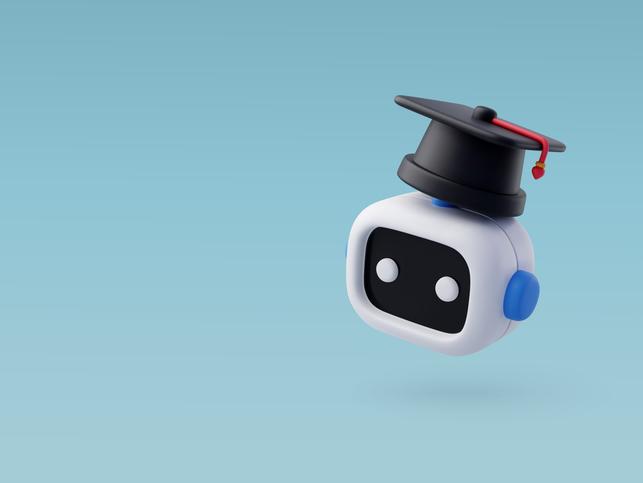
Beyond Chat: how AI teaching assistants are transforming student support
“It’s not just giving me answers. It’s helping me think through the problem step by step,” a student said as I watched them using an AI teaching assistant. They showed me how Syntea had guided them through a complex financial concept using the Socratic method. This moment crystallised something fundamental about AI in higher education: when implemented thoughtfully, it’s about not just providing information but enhancing the entire learning journey.
The power of purposeful design
Let’s start by distinguishing between two approaches to AI implementation in teaching. The first is what we might call the “generic AI” approach – where institutions simply adopt AI tools and hope for the best. The second is “pedagogically integrated AI” – where every interaction is part of a carefully designed learning journey, aligned with curriculum and teaching philosophy.
- Resource collection: What next for GenAI in higher education?
- Spotlight guide: Bringing GenAI into the university classroom
- Campus podcast: the future of XR and immersive learning
The difference is crucial. Generic AI is like having access to a vast library without guidance. Pedagogically integrated AI, on the other hand, is like having a knowledgeable teaching assistant who understands your course materials and learning objectives and, most importantly, how to guide you towards deeper understanding.
Designing for deep learning
The most exciting aspect of our implementation has been seeing how thoughtfully designed AI can transform student engagement. Take our “deep dialogue learning” approach. Rather than simply answering questions, Syntea engages students in focused 10-minute dialogues that mirror the Socratic teaching method. Students don’t just receive information; they’re guided through a process of discovery that deepens their understanding.
The architecture of support
Our experience has revealed three key elements that we believe make AI truly effective in education:
- Expert-led design: At LIBF, we ensure that every aspect of our teaching assistant Syntea’s interactions reflects our teaching expertise and curriculum standards. This means students receive consistently high-quality guidance that’s aligned with their learning objectives.
- Adaptive learning pathways: Our “orchestration” system personalises each student’s journey based on their progress and needs. We start with pre-assessment and adapt difficulty levels as students advance to ensure everyone receives appropriately challenging content.
- Integrated assessment: Regular knowledge checks and adaptive questioning help students identify areas for improvement before they become problematic. This proactive approach helps maintain steady progress throughout the course.
Making it work
For institutions considering similar implementations, here are our key insights:
- Start with educational goals: Before diving into AI capabilities, clarify your teaching objectives. What aspects of student support could benefit most from 24/7 availability? How can AI complement your teaching methods?
- Build a strong foundation: Invest time in designing learning pathways and dialogues that reflect your teaching philosophy. This upfront investment pays dividends in student engagement and learning outcomes.
- Think holistically: Consider how AI fits into your broader learning ecosystem. At our institution, Syntea works alongside our other teaching tools and methods, creating a seamless student support system.
Challenges with introducing AI into teaching
Integrating AI into higher education comes with its set of challenges. One of the primary hurdles is staff hesitancy. While many staff members saw the potential of Syntea, there was an initial concern about its role. Could it replace teaching staff? Could it genuinely understand complex student needs? To address this, we focused on open communication, explaining that Syntea is not about replacement but about augmentation – helping staff focus on high-value interactions while AI supports foundational learning.
Another challenge was digital accessibility and literacy among students. With varying levels of comfort in using new technology, ensuring equal access was critical. At LIBF, we prioritised providing comprehensive training to ensure all students could engage confidently with Syntea. This involved workshops and digital literacy sessions as part of our onboarding process.
What we did to overcome these challenges
As well as training resources for our students, it was important that we also trained staff and embedded AI tools into our processes to ease concerns and build confidence. For staff, this included professional development opportunities focused on understanding and leveraging AI tools in pedagogy. Additionally, Syntea is introduced during our staff induction programme.
Our institution also established an AI community to foster collaboration and upskilling. This network supports staff in mastering AI and serves as a forum for sharing best practice and innovations. This approach has been pivotal in creating an environment where AI is seen as a partner in education and day-to-day working, rather than a disruptive force.
By addressing these challenges head on, we’ve set a strong foundation for integrating AI as a transformative tool in higher education. This practical advice can serve as a guide for other institutions embarking on their AI journey.
Looking forward
The true potential of AI in education emerges when we move beyond viewing it as just a question-answering tool. Through careful implementation, we’ve seen how it can become an integral part of the learning journey, supporting students in ways that complement traditional teaching methods.
Syntea also handles support tasks such as 24/7 questions about course materials or topics, while enabling our tutors to focus on more complex interactions and personalised guidance. It’s not about replacing human teaching but about extending our ability to support students effectively at every stage of their learning journey.
Thorsten Fröhlich is a subject matter expert for IT and Technology programmes at Walbrook Institute London (formerly LIBF).
If you would like advice and insight from academics and university staff delivered direct to your inbox each week, sign up for the Campus newsletter.




